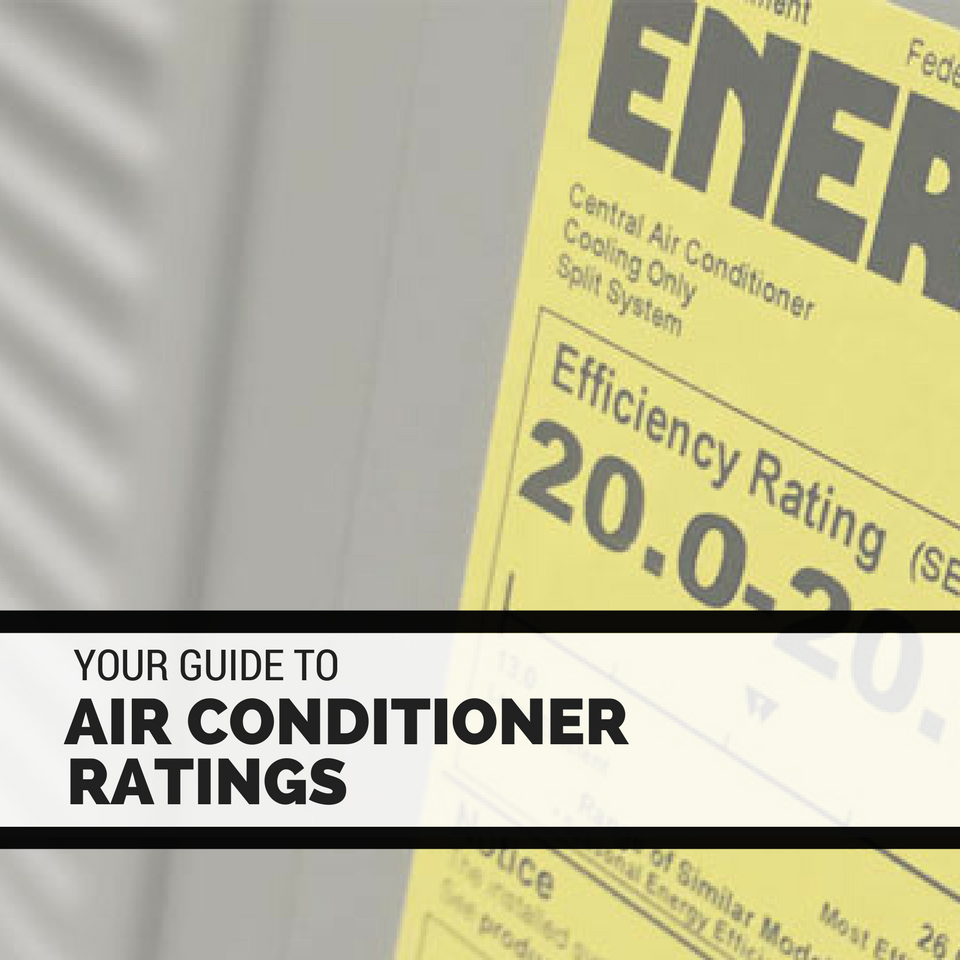Your Guide To Air Conditioner Ratings

Air conditioning ratings were developed to help consumers make an educated choice when shopping for a new central air conditioner or heat pump. The ratings play a pivotal role in determining the cost of the system as well as how much it costs to operate.
We stress the importance of energy efficiency because your HVAC system uses more energy than anything else in your home. Boosting efficiency allows you to maximize savings while maintaining a high level of comfort.
When shopping for a new system, pay attention to the SEER and EER rating on the EnergyGuide label.
SEER
The SEER or Seasonal Energy Efficiency Ratio indicates the required amount of energy it takes to run the system over an average cooling season. The higher the SEER rating is, the greater the efficiency.
Effective since 2015, the federally regulated minimum SEER rating for air conditioning systems is 13 or 14 SEER depending on where you live. Some older equipment may have a rating as low as 6 SEER, which is very inefficient.
EER
EER or Energy Efficiency Ratio shows how an air conditioner performs under maximum cooling load. It is like calculating the “highway miles” of a system. The rating is based on higher temperatures, usually 95 degrees or higher, and considers humidity conditions.
HSPF
The HSPF or Heating Seasonal Performance Factor is used to gauge the heating efficiency of heat pumps over the course of an entire season. (A heat pump’s cooling efficiency is measured by its SEER). The higher the number, the greater the efficiency and cost savings.
The U.S. requires split-system heat pumps manufactured after 2015 to have an HSPF rating of at least 8.2. Single units must have a rating of at least 8.
Determining the most cost and energy efficient system you need is not as simple as choosing a number. There are many other factors that you need to take into consideration, which is why you should consult a professional at Burkholder’s. We have the training and experience to be able to properly assess your home, and make the correct recommendations that will help you meet your comfort and energy efficiency objectives.
Are you thinking about upgrading your system? Contact us for a FREE estimate today.
